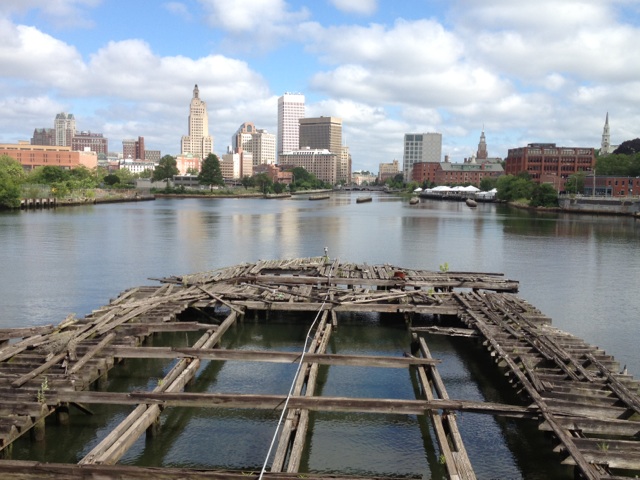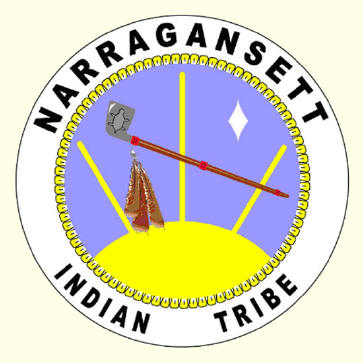Every couple of years someone in RI has the same brainstorm: “Let’s balance the budget by increasing state gambling revenue!” There is often some time-critical imperative requiring that we do it immediately if not sooner. This election cycle it’s the threat/certainty of gambling casinos going up across the border in Massachusetts: our addicted gamblers will be drawn away from RI’s gambling dens to wager away their family’s resources, thereby causing RI state to lose revenue. RI’s solution, being voted on in ballot referenda 1 and 2, is to add table games to both Newport Grand and Twin River.
Rhode Island’s greater and greater dependence on gambling income has arisen because of the myth that gambling has no victims, because supposedly increasing revenue via gambling will not raise taxes, and because raising taxes in the open is anathema to the General Assembly. And forget about lowering spending. Supporting gambling seems the easy way out of the annual budget-setting crisis, but it is not only immoral (it amounts to a regressive tax on the poor, uneducated and minorities), it’s also really dumb.
In-depth studies have estimated that the economic costs of gambling exceed the benefits by three-to-one; also see: Gambling Economics: Summary Facts. That is, for every new dollar of revenue three new dollars of costs arise. This does not include the immeasurable emotional tragedies of broken families, bankruptcy, suicide, etc. that can result from problem or pathological gambling.
Investing in Fool’s Gold
Proponents point out that gambling is the third largest source of income to the state, so we can’t possibly get rid of it or have it threatened by competition from Massachusetts. However, it (so far) “only” composes 10% of state revenue.
There has been the implication that the new RI gambling facilities will make up for a possible loss in business due to the new MA casinos. In order to examine this, the state arranged for a gambling impact study (January, 2012) of the forthcoming presence of gambling facilities in Massachusetts on gambling revenue to RI. However, the report shows that adding table games in RI will NOT make up completely for the lost revenue, in fact far from it. WITHOUT table games (the current situation) Gross Gambling Revenue to the state will decrease by $75M after the new Massachusetts casinos are established. WITH table games (if the referenda pass) the GGR will STILL decrease and by about the same amount: $59M. That is, adding table games will likely only save the state $16M annually on a roughly $8B budget (0.2%). Is this really worth the costs? NO.
The gambling income to the state discussed in the gambling impact study consists of only the raw revenue increase to the state, that is, there are only economic positives. It makes NO mention of either economic or moral negatives, let alone does it try to measure them. Of course, the human costs are incalculable.
However, a whopping percentage (perhaps 300%, as noted above) of any state’s revenue from gambling goes right out the door again in the economic costs of crime, broken marriages, abused children, etc. Thus the supposed increased revenue from gambling is just fool’s gold. In fact, what we should really do is eliminate all gambling in the state. We would save a bundle.
By supporting gambling and using it as a major source of revenue the state effectively imposes a (another) regressive tax on poor and lower-income residents. These people are the ones most likely to gamble and least able to afford it. They provide the supposed extra state revenue needed to balance the budget every year, not the well-off. Therefore the better-off residents are not paying their fair share of state taxes.
Let’s take a look at another supposed benefit of the added table games, in particular focusing on Twin River. The claim is that the expansion adds many jobs. This is a mirage. The new casino income arises both from the ‘entertainment’ of gambling and from increased patronage of on-premises restaurants and other onsite businesses. But all of this decreases the business to existing restaurants, theaters, and other independent businesses outside of the casino, and possibly far from it, which eliminates existing jobs. (Example: In Atlantic City in 1978, just before casinos opened, there were 311 local taverns and restaurants. 19 years later there were 66.) Further, the casino jobs are low-quality, truly dead-end and low-status. Do parents brag about “our son, the croupier”?
On the Addicted Gambler
Gambling addiction is real. Problem gamblers make up about 0.5-2% of the population, nationally. (RI’s figures are similar to those of the whole country.) The percentage increases substantially the closer a gambler lives to a casino, particularly within 50 miles of a casino. This is the entire state of Rhode Island!
Like other forms of addiction, gambling addiction affects more people than just the gambler. It is estimated that typically 5-10 other people around him/her are also negatively affected. Therefore roughly 2.5-20% of the population is adversely affected by gambling (this does not even include the increased proportion arising from the closeness of the casinos). In RI that works out to be 25,000 to 200,000 people, perhaps a fifth of the state at the high end.
An addicted gambler is often 10’s of thousands of dollars in debt; he and his family are often financially ruined. Counseling is available to treat gambling addiction, and may be partially state-supported again in the future via the referenda. But providing counseling is like a drunk driver offering an accident victim with paralysis a wheelchair to make it right; it just doesn’t, the damage has been done, and there’s no way to reverse it.
Counseling doesn’t help everyone, and not necessarily permanently, as is the case with treatment of other addictions. In a study done right here in RI Dr. Robert Breen of Rhode Island Hospital found that eight weeks after intensive treatment, while many subjects had been helped, 28% of them had returned to gambling. That’s only eight weeks! Longer-term recidivism rates are unclear, but presumably are worse. So for many gamblers and their families, again, there is no going back. Further, the counseling and other social services for affected families can be a substantial monetary cost to the state.
Summing It Up
The humanitarian cost in shattered lives and families from gambling addiction is unacceptable. The economic impact is negative. There is no gain anywhere, only loss. Only one course of action is justifiable: VOTE ‘NO’ on Referenda Questions 1 and 2.
____________________________________
These are my personal opinions. I have no affiliation with pro- or anti-gambling organizations and have no financial interest in Amazon.com.
Many thanks to Laurette for one heck of a lot of help with this!




